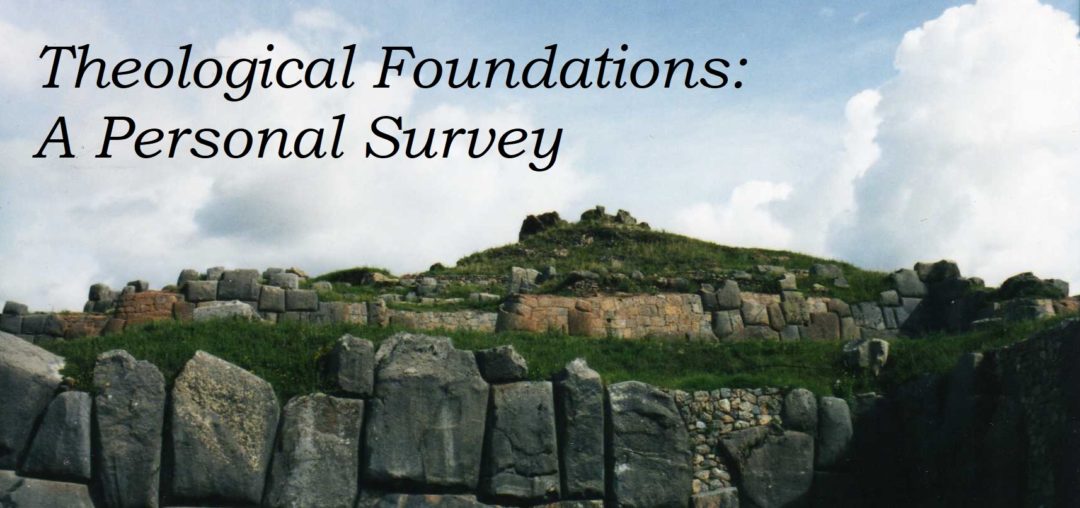Part One: Public Theology | Part Two: Incarnation | Part Three: Resurrection
Back when I was still trying to make it as a freelance editor, I took on a contract for doing developmental edits for a “Christian Living”-genre book (a self-help book with a dose of self-righteousness, moralizing, and religious-based shame thrown in for good measure), taking it on because the topic sounded like it was in my wheelhouse. She pitched the concept to me as wanting to get Christians to make room for suffering and pain and how she had been on that journey herself, so I thought I’d be reading a memoir-ish book along the lines of Lewis’ The Problem of Pain.
Instead, what I got was a preachy screed filled to the brim with victim blaming and judgment. Her only argument was the one we’re all used to hearing: ignore your trauma and “choose joy” (or you’re bitter, which is a sin). She was essentially just trying to turn Romans 8:28 into a book. It also became clear that this cis straight middle class white lady had no real idea what she was talking about– her examples of “suffering” included: sibling infighting, bad grades, losing friendships, etc. I only edited the first three or four chapters because I kept pointing out how her words and arguments might be received by traumatized people, abuse victims, grieving parents … she resisted at every point because her theological system demanded compliance over compassion.
A while later I ended up leaving my church over a similar issue: the pastor kept preaching sermons that deliberately conflated suffering abuse with perpetuating abuse, or cracking jokes about spanking babies, or encouraging women to “stick out” unhealthy relationships. At that time, I realized that how people understand trauma affects absolutely everything in their theology. If you do not understand how trauma happens, how trauma works, or the way trauma lives in the body and the mind, then you’re not going to offer appropriate care to anyone affected by it.
Last year I discovered trauma theology and immediately latched on to it as the framework I’d desperately needed to explain this reality. The experiences of my life mean that a Christian theology articulated principally by abusers — Luther, Wesley, Calvin, notably– can only be an unmitigated failure for me. Theology uninformed by trauma does not and cannot work for trauma survivors. In my experience, those theological systems will constantly re-traumatize me, or force me to assent to some sort of complicity in my abuse in order to “seek healing.” And that doesn’t even cover systems that are explicitly and fundamentally abusive, like complementarian theology.
Most compellingly, though, once I was working with a trauma theology framework, it became conspicuously obvious how well it fits as a way of working with Scripture. I’ve used all sorts of lenses over the years to interpret the Bible– historical-critical, Marxist, deconstructionist, feminist, phenomenological, and so on– but most of the time those lenses feel rather “after the fact.” There’s a lot of value of reading with a “hermeneutics of suspicion” or looking for power dynamics, or places where the relationship between signifier and signified might be disrupted, but they are ways of interacting with the text at a distance. Trauma theology, though, just … clicked into place for me, like the Bible was meant to be read that way, that it had been written with trauma theology in mind.
I think this feels so true because trauma, unfortunately, is a deeply human experience– and the Bible is nothing if not deeply and profoundly human.
Last semester I took a class that studied sections of the Tanakh, including the story of Elijah. One of the passages we were asked to prepare an interpretation of before class covered I Kings 19, where Elijah flees from Jezebel and meets G-d at Horeb. As I read the story for the first time in years, I resonated so much with how Elijah responds. After Jezebel threatens him, he flees for his life– and it’s like my gut remembers what it feels like to feel that fear, to be that afraid, because it clenches. Then, he leaves his servant behind and goes into the wilderness alone– and I’ve been down that road myself, both desperately seeking isolation and feeling like I don’t deserve to be around anyone who might care about me. Eventually he collapses underneath a broom tree, begging G-d to just let him die and falls asleep– and I think about the countless times I’ve pulled the covers up over my head and just wished that everything would just stop, could I just stop existing please.
What happens next is so ineffably beautiful.
Elijah awakens to feel a gentle hand on his shoulder, smelling the warm and sweet smell of fresh bread, and hears someone telling him “Get up, and eat.” He looks, and there’s bread baking on the stones beside him, with water beside it. He eats, drinks, and goes to sleep again. When he wakes up, the voice is still there, and so is more fresh water and hot bread. As I read, I thought of all the times I’ve been in bed when my partner comes home, struggling to both embrace and fight off the absolute numbness that pervades my life sometimes. I thought of all the times he’s put a gentle hand on my shoulder and said “Get up, and eat,” and I look, and he’s made pancakes and there’s a mug of tea on my nightstand just how I like it.
Elijah is traumatized. It’s the only word to describe what he’s been through– he’s lived in fear for his life for who knows how long, and it’s taken a toll. He’s tired. He’s done. He puts one foot in front of the other until he just can’t anymore, and what does G-d do? G-d tells him to sleep. G-d brings him food.
G-d meets him. Elijah encounters G-d not in the thunder or earthquake, but in a “soft murmuring sound.” G-d understands his trauma, and gives him the time he needs to heal and recover from being triggered by Jezebel’s emotionally and psychologically abusive threats. G-d helps Elijah restore some of his equilibrium, and then sets him on a path where he meets Elisha for the first time: a relationship. A partner, and his legacy.
Trauma theology helped me see all that, revealing it all in an intuitive, natural way. I can see it everywhere now, too– in every single one of Jesus’ healing miracles, when Moses flees Egypt, the interactions between Paul and Barnabas, or Mary Magdalene at the Tomb. I especially see it when Jesus tells Thomas to touch his hands and his side, because as a rape survivor who has spent half a dozen years trying to get people on the internet to respond to rape victims appropriately, I know exactly what it feels like to offer up your wounds as proof for skeptics to shove their hands into.
***
In real-world practical terms, what truama theology unveiled to me is that I believe Christianity should fundamentally be about healing– all forms of healing. I want to see a world of spiritual restoration, physical balms, emotional resilience, strong connections, and relational power. I need to join Jesus’ ministry of healing, of “touched and being touched.”
Spending the last year reading Scripture through a trauma theology lens and fleshing out my trauma theology has also made it easier to view my life and other people in a trauma-informed way. The last seven months of my life have been extraordinarily difficult, and at times I wasn’t sure how I was going to be able to handle some pieces of it. Trauma theology, though, helped me retain my values– kindness, compassion, understanding– because through a hazy cloud of my own pain I could more easily see the ways trauma, shame, and vulnerability were being activated in all the situations I’ve been in this last year. Social researchers call this “self-differentiation,” but I’m starting to think of it as “becoming more like Christ.”




